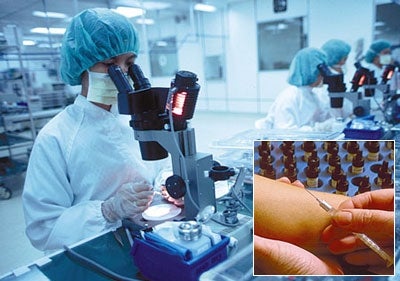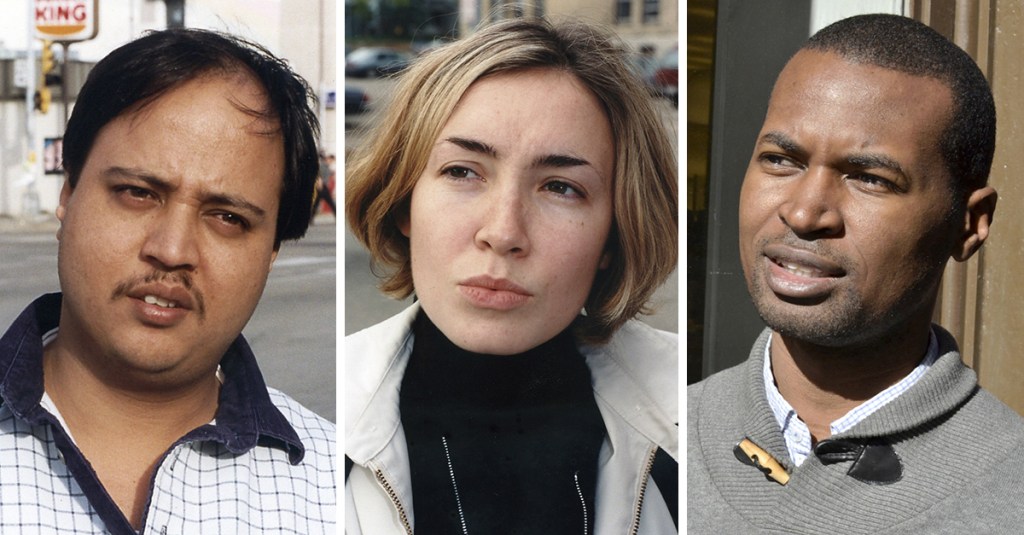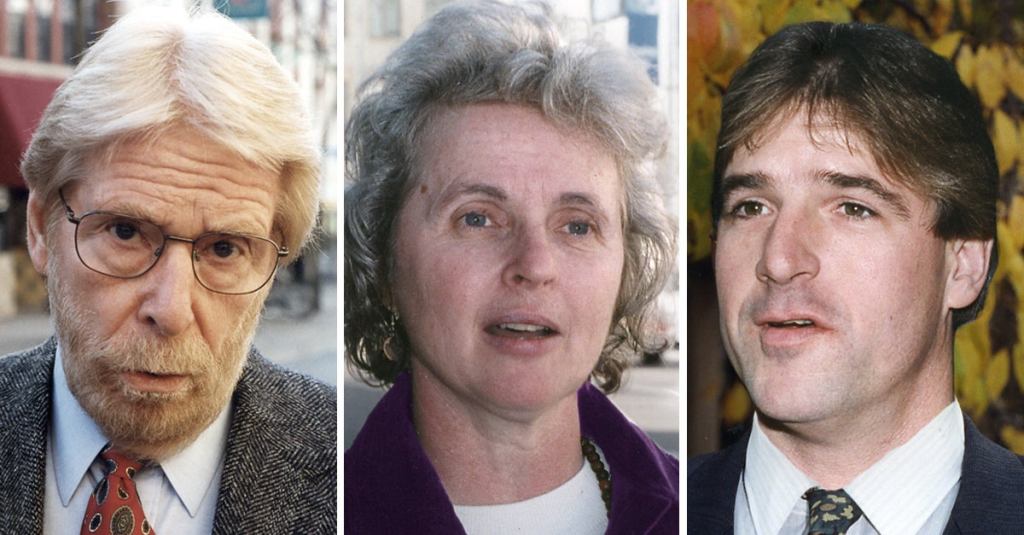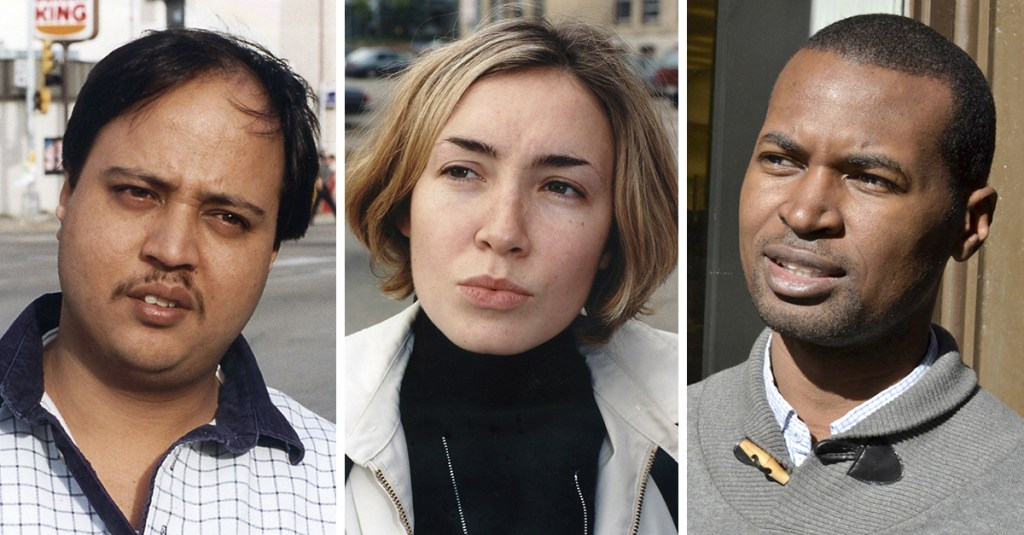ITHACA, NY–In a stunning medical breakthrough, a team of Cornell University biogeneticists announced Tuesday that it has developed a revolutionary new synthetic hormone that retards the human aging process, enabling individuals to extend the churning, meaningless void known as life by upwards of 20 years.
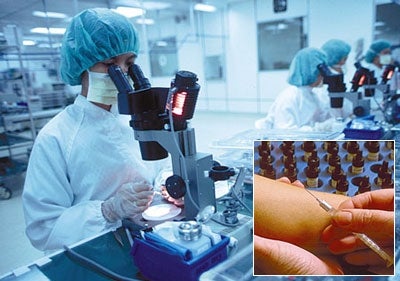
“This remarkable new hormone will enable millions of people to live longer, healthier lives,” said Dr. Marlene Peretz-Worthington, head of the Cornell team. “Once the substance wins FDA approval and is made available to the general public, the hellish emptiness of our spiritually blank lives should be that much more inescapable.”
According to Peretz-Worthington, between 1990 and 1998, 250 test subjects between the ages of 68 and 81 were injected bi-weekly with Noexitoxythalynucleothylinase, an experimental DNA-modifying hormone that “freezes” the genetic codes that regulate aging. In all 250 subjects, the drug slowed down the aging process by at least 30 percent, adding years to their futile, purposeless existences.
In addition to retarding aging, Noexitoxythalynucleothylinase has proven effective in fighting disease. Experts cited the example of Gus Dermott, a Charlotte, NC, dockworker whose nightmarishly empty life of grueling menial labor nearly ended when he was diagnosed with Lou Gehrig’s Disease. When administered high doses of the hormone over a seven-month period, Dermott showed such rapid improvement that doctors now estimate he will be able to return to his soul-crushing, spiritually hollow toil within as little as three months.
“I was bedridden, just waiting to die,” Dermott told reporters. “But now, they tell me I can go back to that same dock where I’ve already wasted almost 20 years of my life, and waste the rest of it while waiting to die there instead.”
Gertrude Anne Klingbell, an 89-year-old Alzheimer’s Disease sufferer from Shaker Heights, OH, had equally miraculous results using the hormone.
“I used to be blissfully unaware of my pathetic, pitiable state,” said Klingbell, whose Noexitoxythalynucleothylinase treatments have restored her mental faculties. “Now, the doctors say I can live on without any purpose whatsoever for years, trapped helplessly within the bleak prison of shattered dreams and blasted hopes that has been my life.”
According to Cornell’s Dr. Sunil Gupta, Noexitoxythalynucleothylinase also has applications in treating cancer.
“The cancer patients who participated in our study expressed a deep sense of hopelessness and despair, not only over the disease, but the horrifying awareness of the random injustice of the world that contracting the disease instilled in them,” Gupta said. “Now, that sense of misery in the face of an uncaring universe can be stretched out over many years of grueling family crisis, despair, painful chemotherapy and surgery, instead of mere months.”
Despite its early successes, Noexitoxythalynucleothylinase has yet to be proven effective in fighting some life-threatening diseases, diseases which still may offer us eternal respite from the screaming vortex of unending blankness that defines the human condition. But as medical science continues its pointless fight to indefinitely prolong the existential void of modern life, the revolutionary new hormone represents the most promising development in years.
“Thanks to Noexitoxythalynucleothylinase, the wasteland just got a little bigger,” said American Medical Association executive director Dr. Gordon Puhl. “We’re all very excited about the new drug and its potential to imprison patients–even if only for a few more desperate, agonizing years–in lives they can make no sense of, see no point in, and find no worthwhile purpose for. As we slowly learn to accept that our pretensions to relevance and meaning are but so many fragile, illusory constructs which crumble like sandcastles in the face of the universe’s utter indifference to our plight, one thing is certain: Noexitoxythalynucleothylinase and other such medical advances will ensure that, for each of us, young and old alike, terminally or mildly ill, our suffering is far from over.”


